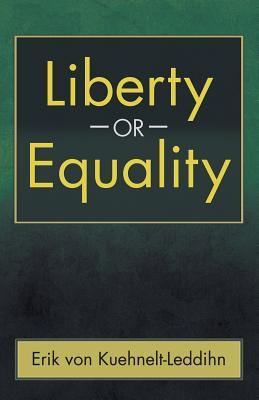The second proposition is that monarchy is a more serviceable form of government than democracy, and is likely to be more liberal. Here the author deals with the weaknesses and inherent dangers of the democratic doctrine, which are avoided or mitigated in monarchical government. The final proposition is that the political temper of historically Catholic nations is more liberal than that of Protestant nations.
While the political temper of our own times dictates a new servitude of enforced equality--even alongside the ideal of negative freedom--arbitrary equality, writes Kuehnelt-Leddihn, is a natural impossibility. Complete liberty is likewise an unnatural concept. While both are unnatural conceptions, there is a practical solution to this dilemma that has confounded human history. Hinted at by the author throughout, it involves both a retrieval of the best of Catholic political and social thought, as well as the observance of a tested and venerable program of action: in necessities unity; in doubtful things liberty; in everything charity.
